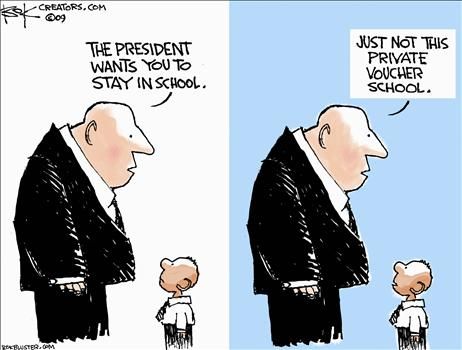.
A July 2008 study in the Journal of Policy Sciences finds that higher spending on public schooling is associated with lower subsequent economic growth. Spending more on public schools hurts the U.S. economy.
How is that possible?
There is little debate - in academic circles - that raising human capital -- improving the skills and knowledge of workers -- boosts productivity. So an obvious interpretation of the JPS study is that raising public school spending must not increase human capital.
While this possibility surprised study authors Norman Baldwin and Stephen Borrelli, it is consistent with the data on U.S. educational productivity over the past two generations.
- Since 1970, inflation adjusted public school spending has more than doubled.
- Over the same period, achievement of students at the end of high school has stagnated according to the Department of Education's own long term National Assessment of Educational Progress.
- Meanwhile, the high school graduation rate has declined by 4 percent or 5 percent, according to Nobel laureate economist James Heckman.
- So the only thing higher public school spending has accomplished is to raise taxes by about $300 billion annually, without improving outcomes.
Based on this body of research, the president's decision to pump $100 billion into existing public school systems is likely slowing the U.S. economic recovery.
READ MORE
image toon - edu crpt libs - Oby wants kids in school - but not voucher schools














No comments:
Post a Comment